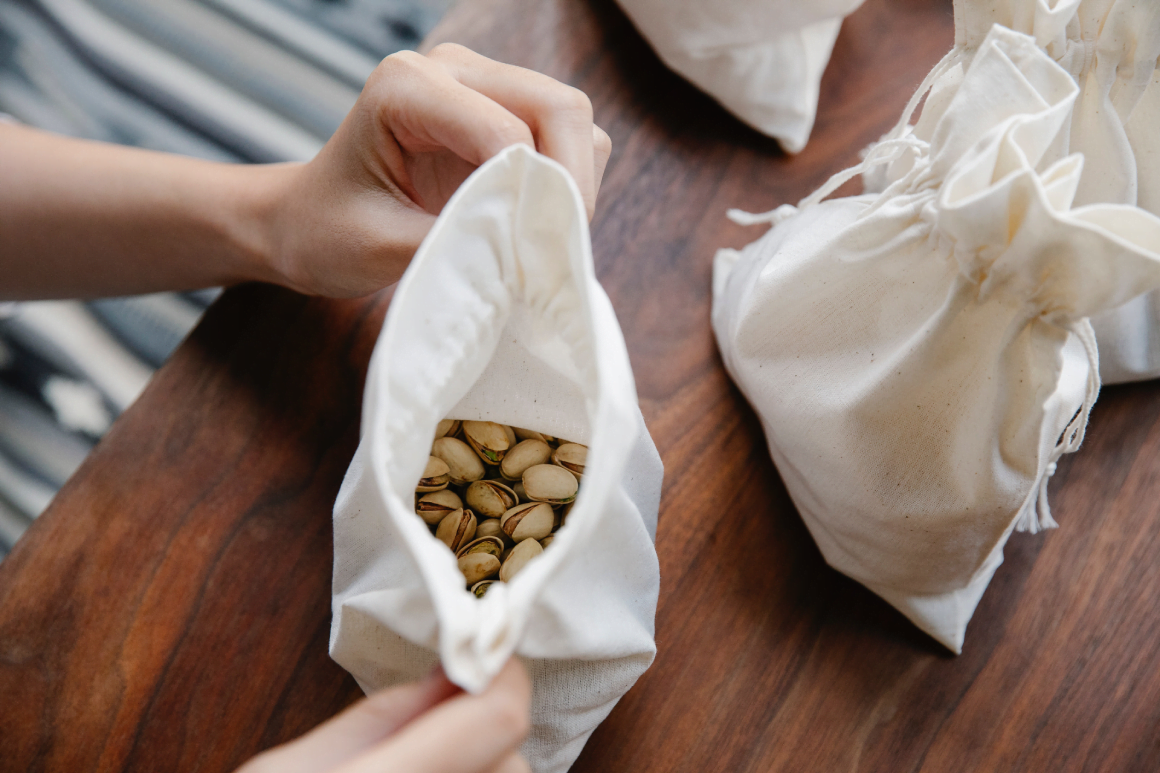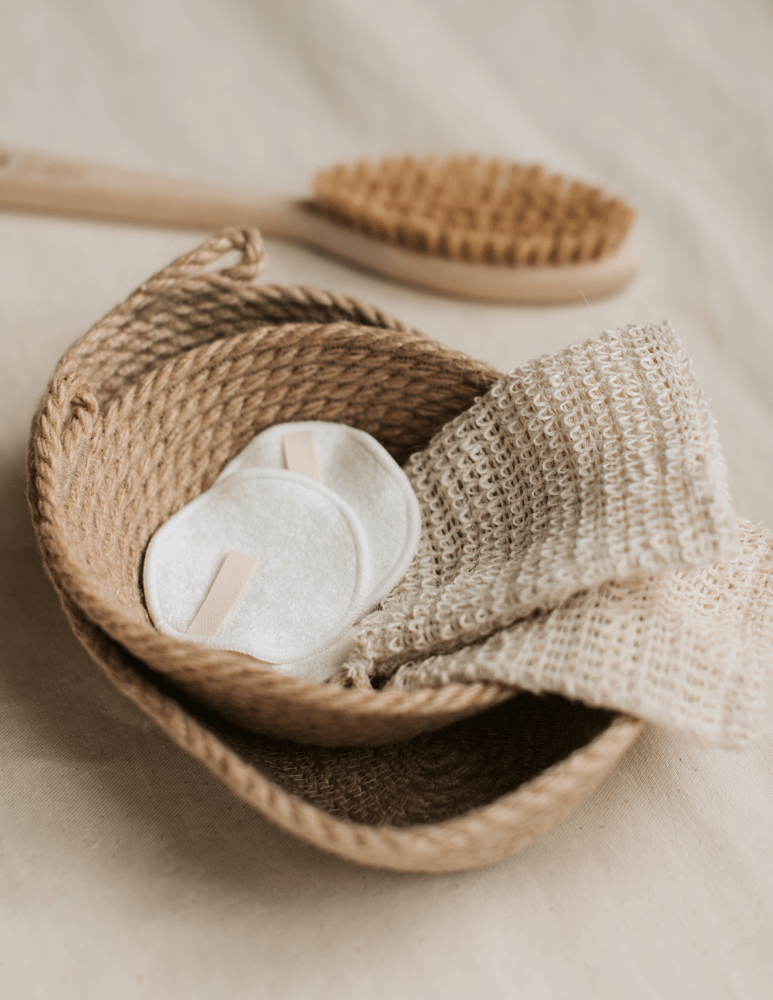When it comes to products that you use daily – such as clothes or personal care products – the materials you choose can make a huge difference in how comfortable you feel. Natural fibres – like cotton – have long been prized for their softness, breathability, and comfort against the skin, compared to artificial fabrics like polyester, which can often feel scratchy, unpleasant to wear, or even cause irritations and allergies. Now it’s the time to thank Nature for its gifts by embracing the beauty and benefits of natural fibres, and by choosing materials that reflect our commitment to sustainability and eco-friendly picks!
Cotton – from fluffy fibres to versatile products
There are many types of natural fibres, but one of the most commonly used is cotton.
Cotton is a soft, fluffy fibre, growing on the plant in a round, protective case, surrounding the seeds of the plant. It is commonly used to make clothing, bedding, towels, and personal care products. Extremely versatile and highly absorbent, it has been used for thousands of years, with evidence of cotton fabrics dating back to prehistoric times.

Smart choices for a greener future
In recent years, there has been an increasing interest in sustainable and eco-friendly fashion. The fashion industry is one of the world’s biggest polluters, so the demand for more sustainable options has never been higher.
Sustainable cotton farming methods, such as organic and regenerative farming, are growing in popularity and can reduce the amount of resources needed to grow cotton. In addition, innovations in irrigation technology, pest control, and fertilisation methods help farmers optimise resources. How can you contribute? Buy your clothes and other necessary cotton products from producers who guarantee a reduced environmental impact.
Recycled fibres – give your clothes the chance of a second life
If you feel it’s hard to say goodbye to your favourite jeans that have been with you for years, don’t be! Bring them to a clothing recycling point – chances are high that you will meet them again one day, in the shape of a revived clothing item.
Recycled cotton fibres are made by breaking down old clothes and other textile waste into individual fibres and spinning them into new yarns and fabrics. This process not only reduces waste and landfill use, it also saves valuable resources such as water and energy required to produce new cotton fibres.
While producing new cotton might require large amounts of water, pesticides, and other chemicals that are harmful to the environment, as well as long hours of human work, recycled cotton fibres do not require these resources and therefore, have a much lower environmental impact.


Embrace sustainability in style
One of the most exciting things about recycled cotton is its versatility. It can be used on a wide range of textiles, from denim jeans to t-shirts. In fact, recycled cotton can be used in almost any application that traditionally uses virgin cotton fibres.
Another advantage of using recycled cotton fibres is that they are often cheaper than virgin cotton fibres. Recycled cotton fibres are more affordable than virgin cotton fibres because they come from waste. This means sustainable fashion will be accessible to a wider range of consumers, not just those willing to pay a premium for eco-friendly clothing.
In order to make it easier for us, all the great names in the fashion industry have created sustainable clothing lines which are clearly labelled in shops, both physical and online.
Besides environmental awareness, conscious and sustainable clothing lines often prioritise fair labour practices and transparency around supply chain issues.
Higher quality, durability, and comfort
In addition to the environmental benefits, recycled cotton fibres also offer a range of benefits in terms of quality and durability. Recycled cotton fibres are often more durable than virgin fibres because they have already gone through wear cycles. This means that clothes made from recycled cotton fibres will last longer and can withstand daily use.
Additionally, recycled cotton fibres are often softer and more comfortable than freshly produced cotton fibres. This is because the recycling process breaks down the fibres, making them more flexible and easier to work with. This results in garments that feel great on the skin and are less likely to cause irritation or discomfort.

The diversity of natural options
As well as comfort, natural fibres bring the feeling of being connected to the Earth and appreciating all that it has to offer. If you are curious about other options, you should know there are plenty of other natural materials commonly used. While cotton is soft and breathable, making it ideal for warm weather clothing, each of these natural fibres below has unique properties that make them suitable for different applications:
1. Linen: Linen is made from the fibres of the flax plant. It is a strong, absorbent fabric that is commonly used for making clothing, bedding, and tablecloths.
2. Hemp: Hemp is a tough, fibrous plant that is often used to make rope, paper, and textiles.
3. Jute: Jute is a long, soft, shiny plant fibre that is commonly used to make bags, rugs, and other coarse textiles.
4.Bamboo: Bamboo is a fast-growing, sustainable plant that can be made into a soft, breathable fabric that is used for clothing, bedding, towels, and even to replace hard plastic.
By choosing sustainable and recycled materials, we can show our appreciation for the natural resources that make our clothing possible, while also ensuring that future generations can enjoy the same care and comfort that we do today.





